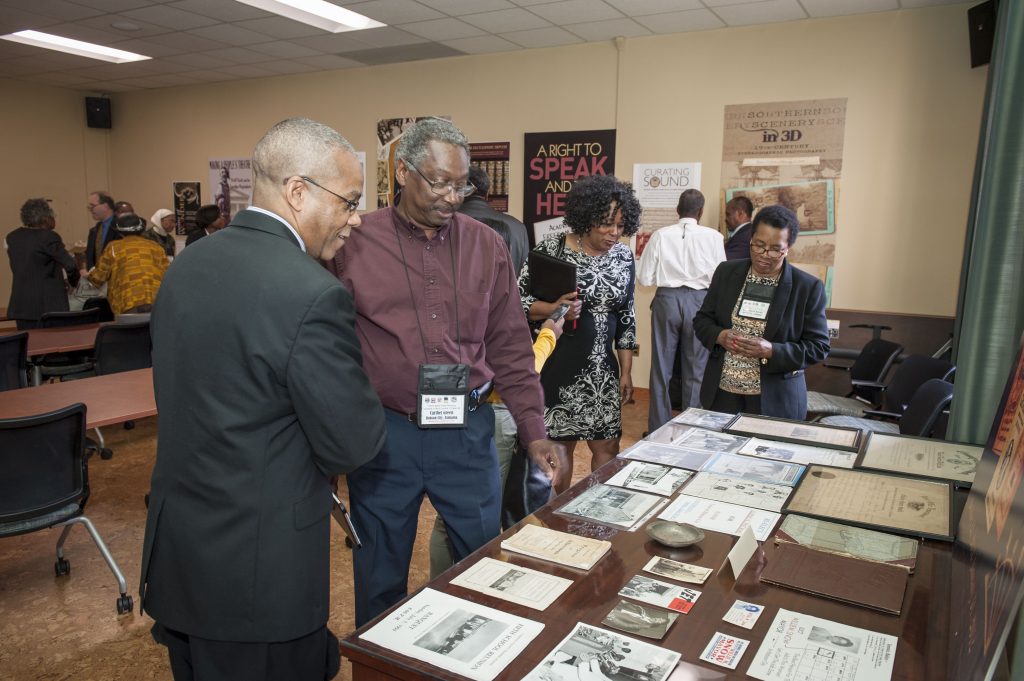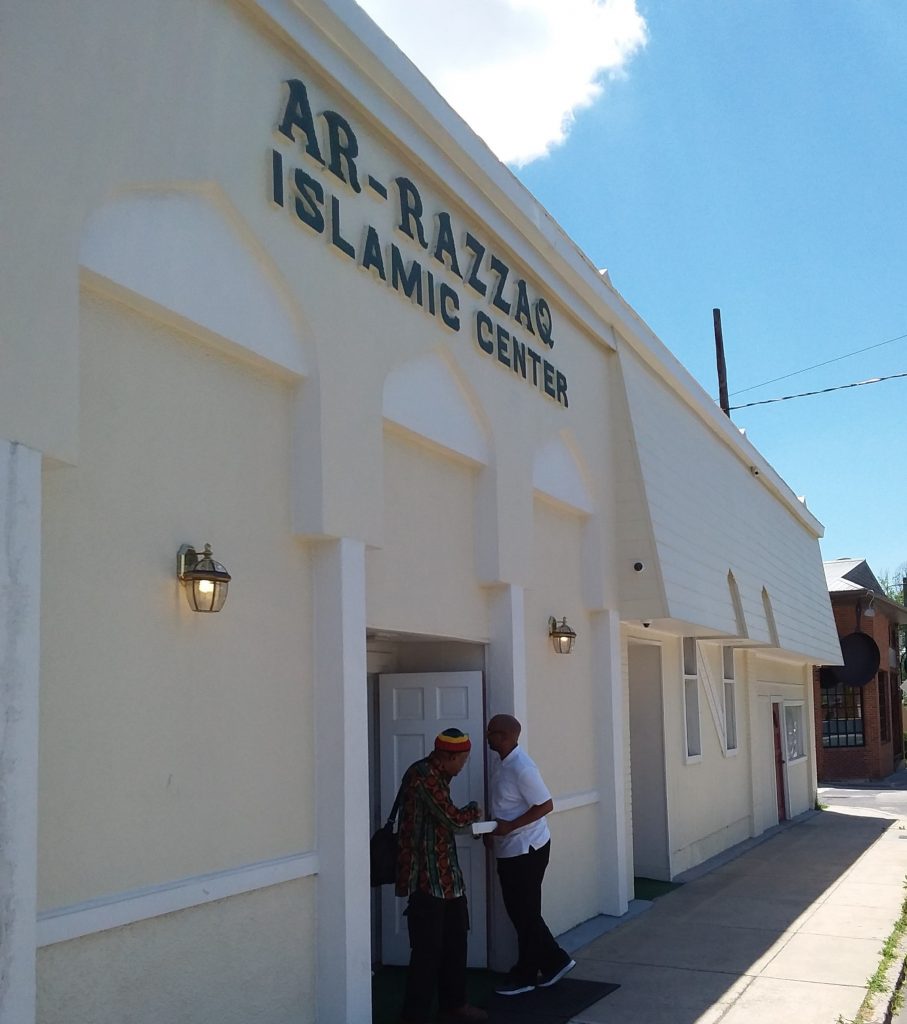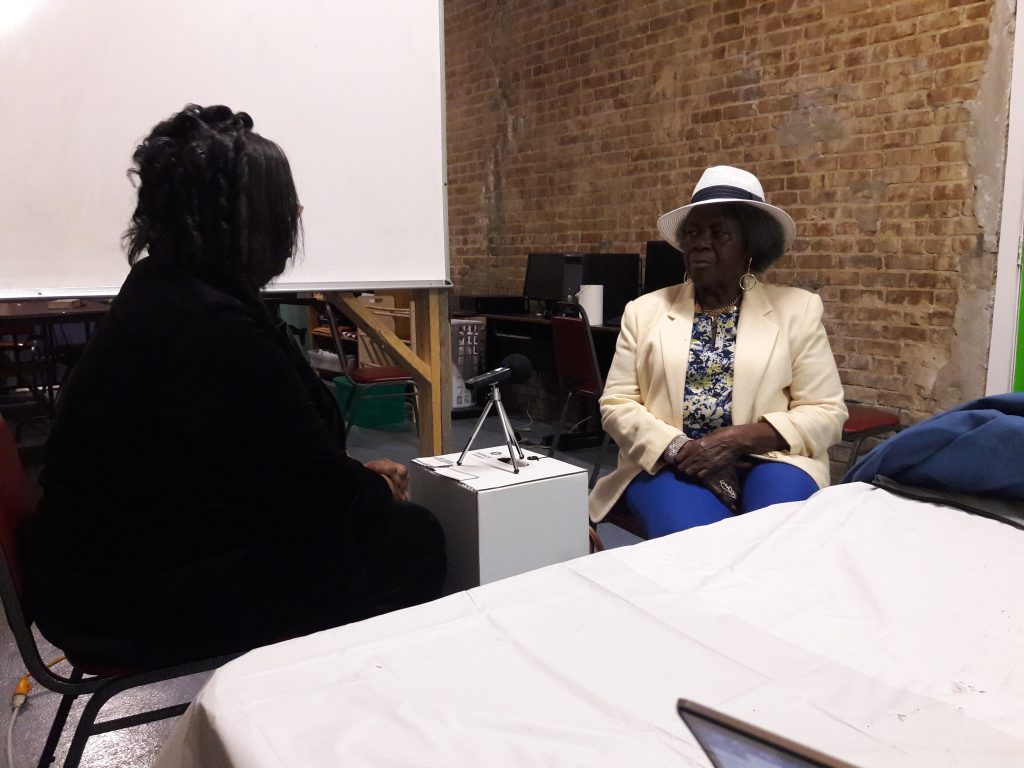Throughout our grant project, we extended our support to individual history keepers and community archives projects outside of our pilot partner communities.
Black Communities Conference

What We Did Together
Our Community-Driven Archives team values the incredible work of the Black Communities Conference and sees our work as in alignment with theirs. In 2018 and 2019, we welcomed our San Antonio African American Community Archive and Museum (SAAACAM), Eastern Kentucky African American Migration Project (EKAAMP), and Historic Black Towns and Settlements Alliance (HBTSA) partners to the Carolina Theater in Durham, North Carolina for this multi-day conference. We hosted charrettes, gave presentations, and made valuable connections through our involvement.
What We Learned
Like in our work with the Historic Black Towns and Settlements Alliance, we saw countless examples of the past informing the present in the lives of Black communities around the world. As stewards of historical records, archives have a role to play in conversations about the legacy of racism and white supremacy related to issues such as land ownership, colorism, healthcare, and policing, to name a few topics discussed at the conference. As we articulated in our 2020 session for the Black Communities webinar series, we are eager to share Black community histories as strong examples of how, together, we can build cooperation, equity, and inclusion into our society.
Archival Seedlings

What We Did Together
In 2019, our grant team launched Archival Seedlings, a 15-month archival training program for 10 individuals connected to our pilot partner communities.
Participant “Seedlings” each received a stipend to develop a research question, build an archive, share their project with a broader community, and make a preservation plan for their work. We supported them through regular check-in calls, monthly skill-building workshops, and two virtual cohort convenings. Each Seedling’s work process and project are captured beautifully through a digital exhibition.
What We Learned
Seedlings participants helped us gain perspective about what from our work was replicable and helpful to other researchers beyond our partners. The Seedlings program allowed us to identify and demystify core archival concepts and skills through digital workshops that will continue to serve history keepers beyond the end of our grant.
Before the program started, Seedlings didn’t have existing ties to Carolina’s libraries, and most didn’t have a team of people with which to share project labor—but they had a passion for storytelling. We witnessed Seedlings make progress on their projects while navigating competing priorities and technology learning curves and managing their own expectations about how much they could do during a pandemic. Participants’ archival projects are a testament to their commitment to their work and to their collaborators.
Naomi Feaste

Throughout our project, we were open to supporting community members within our network who reached out to us but who were not a pilot partner or a Seedling. Durham, North Carolina-based history keeper Naomi Feaste’s work on North Carolina’s Muslim African American community fits this mold. Feaste requested support with transforming elements of her 2018 physical exhibition at the Museum of Durham History about her community into a digital exhibition. Our team supported Amir El-Chidiac, a Library Science graduate student at North Carolina Central University, through a paid practicum to undertake this project based on Feaste’s work.
What We Did Together
Working with Naomi Feaste on her digital exhibition provided an opportunity to extend the offerings of our Seedlings program to an additional researcher. We see projects like this one with small scopes as institutionally more sustainable as we strive to pursue community-driven archives work outside of grant funding.
What We Learned
Our Community-Driven Archives team has always included graduate students, many of whom have used their experiences with us to help them land positions after graduation. As the largest employer of academic librarians in the state, University Libraries at UNC-Chapel Hill is eager to offer opportunities like this one to library science students at other schools.
Hawkins v. Town of Shaw Commemoration Committee, Shaw, Mississippi

What We Did Together
When members of our grant team travelled to Mound Bayou, Mississippi in the fall of 2018 to host a charrette and an Archivist in a Backpack training, we were introduced to members of the neighboring predominantly Black town of Shaw. Shaw residents were in the process of developing an original play and performance based on oral histories. Their performance would commemorate Hawkins v. Town of Shaw, a 1969 class-action civil rights lawsuit that sparked racial tension as the courts found that municipalities could be accountable for systemic negligence in public accommodations directly impacting Black residents. We collaborated with local community members, as well as Delta State University and the arts nonprofit StoryWorks, to offer Archivist in a Backpack kits and accompanying training sessions in the spring of 2019.
What We Learned
Our team-based approach to this project showed us how strong collaborative work can be. Delta State University was the repository for the oral history recordings. StoryWorks ensured that there was a deep connection between the oral histories included and the people who created them, so folks would know that their contributions mattered.
Community members had trusting relationships with each other, which allowed the memories to flow. Our involvement included facilitating conversations and activities about the importance of community leadership in building collective memory projects, drawing on our Archivist in a Backpack toolkit. We believe we can have a broader and deeper impact if we use community leadership as a lens for outreach.
